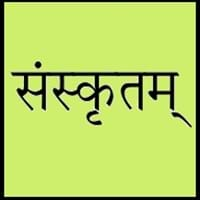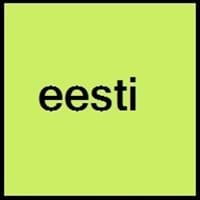Sanskrit vs Estonian
Countries
India
Estonia, European Union
National Language
India
Estonia, Gambia
Second Language
Not spoken in any of the countries
Not spoken in any of the countries
Speaking Continents
Asia
Europe
Minority Language
Not spoken in any of the countries
Denmark, Russia, Sweden
Regulated By
Not Available
Institute of the Estonian Language
Interesting Facts
- Sanskrit language has highest number of vocabularies than any other language.
- Sanskrit Language has proved to help in speech therapy, also it increases concentration and helps to learn maths and science better.
- Estonian language is considered to be powerful symbol of Estonian identity and culture.
- Estonian language has adopted many words with Finnish language.
Similar To
Old German Language
Finnish
Derived From
Prakrit Language
Not Available
Alphabets in
Sanskrit-Alphabets.jpg#200
Estonian-Alphabets.jpg#200
Writing Direction
Left-To-Right, Horizontal
Left-To-Right, Horizontal
Hello
नमस्कारः (namaskāraḥ)
Tere
Thank You
धन्यवादाः (dhanyawādāh)
aitäh
How Are You?
कथमस्ति भवान् (kathamasti bhawān)
kuidas sul läheb
Good Night
शुभरात्री (shubharātrī)
Head ööd
Good Evening
शुभः सायंकालः
Tere õhtust
Good Afternoon
शुभ दुपार
Tere päevast
Good Morning
सुप्रभातम् (suprabhātam)
Tere hommikust
Please
कृपया (kripayā)
Palun
Sorry
कृपया क्षम्यताम् (kripayā kshamyatām)
Vabandust
Bye
पुनः मिलामः(punah milamah)
Head aega
I Love You
त्वामनुरजामि (twāmanurajāmi)
ma armastan sind
Excuse Me
कृपया क्षम्यताम् (kripayā kshamyatām)
Vabandage
Dialect 1
Not present
Keskmurre
Where They Speak
Not Available
Gabon, Northeastern coast of Estonia
Dialect 2
Not present
Tartu
Where They Speak
Not Available
Georgia, South Estonia
Dialect 3
Not present
Idamurre
Where They Speak
Not Available
France, Northwestern shore of Lake Peipsi.
Speaking Population
Not Available
Not Available
Native Name
संस्कृतम् (saṃskṛtam)
eesti keel
Alternative Names
Not Available
Eesti keel
French Name
sanskrit
estonien
German Name
Sanskrit
Estnisch
Pronunciation
[səmskr̩t̪əm]
Not Available
Ethnicity
Not Available
Estonians
Origin
2000 B.C.
13th century
Language Family
Indo-European Family
Uralic Family
Subgroup
Indo-Iranian
Finno-Ugric
Early Forms
Vedic Sanskrit
No early forms
Standard Forms
Sanskrit
Estonian
Signed Forms
Not Available
Estonian Sign Language
Scope
Individual
Macrolanguage
ISO 639 6
Not Available
Not Available
Glottocode
sans1269
esto1258
Linguasphere
No data available
No data available
Language Type
Ancient
Living
Language Linguistic Typology
Subject-Object-Verb
Subject-Verb-Object
Language Morphological Typology
Synthetic
Agglutinative
Sanskrit and Estonian Language History
Comparison of Sanskrit vs Estonian language history gives us differences between origin of Sanskrit and Estonian language. History of Sanskrit language states that this language originated in 2000 B.C. whereas history of Estonian language states that this language originated in 13th century. Family of the language also forms a part of history of that language. More on language families of these languages can be found out on Sanskrit and Estonian Language History.
Sanskrit and Estonian Greetings
People around the world use different languages to interact with each other. Even if we cannot communicate fluently in any language, it will always be beneficial to know about some of the common greetings or phrases from that language. This is where Sanskrit and Estonian greetings helps you to understand basic phrases in Sanskrit and Estonian language. Sanskrit word for "Hello" is नमस्कारः (namaskāraḥ) or Estonian word for "Thank You" is aitäh. Find more of such common Sanskrit Greetings and Estonian Greetings. These greetings will help you to be more confident when conversing with natives that speak these languages.
Sanskrit vs Estonian Difficulty
The Sanskrit vs Estonian difficulty level basically depends on the number of Sanskrit Alphabets and Estonian Alphabets. Also the number of vowels and consonants in the language plays an important role in deciding the difficulty level of that language. The important points to be considered when we compare Sanskrit and Estonian are the origin, speaking countries, language family, different greetings, speaking population of these languages. Want to know in Sanskrit and Estonian, which language is harder to learn? Time required to learn Sanskrit is 20 weeks while to learn Estonian time required is 44 weeks.





